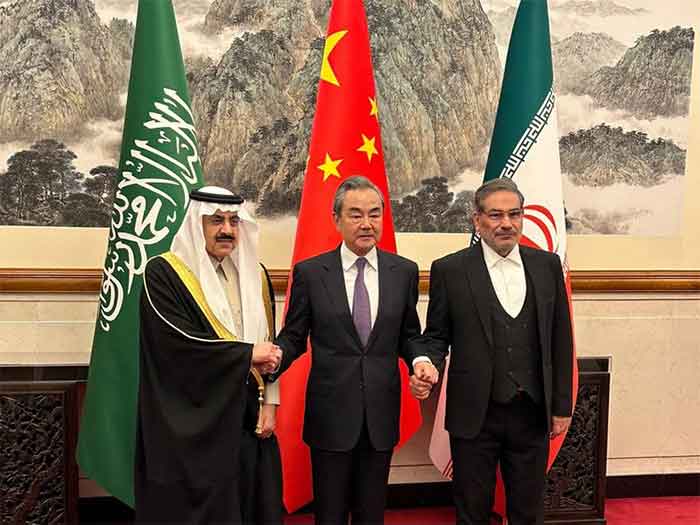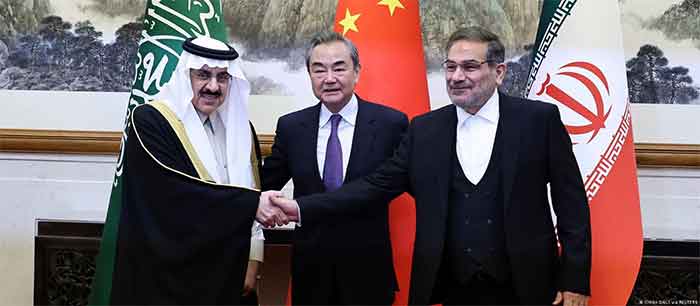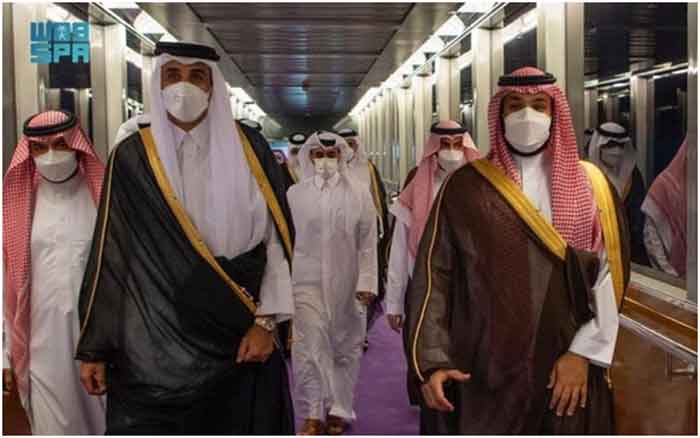
The disintegration of the Soviet Union left the Middle East bereft of any alternatives to US leadership. Washington, a prisoner of American Exceptionalism and Manifest Destiny – the mythical doctrine used by the US to expand and extend its dominion, never proved itself up to the leadership role. The US foreign policy was and remains nothing but a true manifestation of the Maslow dictum that “If the only tool you have is a hammer, you tend to see every problem as a nail”. The Middle East, as does much of the world today, bears stark testimony to Washington’s futile hammer and nails policy.
“Wars and chaos in the Middle East will not end until Saudi Arabia and Iran can find a way to share the neighborhood and make some kind of peace”. This, as expressed in an interview by President Obama, was the key to Middle East peace. Stephen Walt, International Affairs professor at Harvard’s Kennedy School, noted “Obama’s legacy is one of near-total failure”. The Nobel Peace Laureate, instead of practicing what he preached, encouraged Israel, fueled wars and wrought genocidal destruction in Syria and the Middle East.
It was an extension of the post 9/11 Bush legacy that had set the tone for wars and destruction throughout the Middle East. Dubbed as The New Middle East project, it was launched from Tel Aviv in 2006 by Secretary of State Condoleezza Rice and Israeli Prime Minister Ehud Olmert. The predictor to the New Middle East was supposed to be the Iraq invasion. Noted geopolitical analyst Mahdi Darius Nazemroaya writes that constructive chaos, enabling violence and wars extending from Lebanon, Palestine, Syria, Iraq, Iran and the Persian Gulf with possible extension to central Asia, would be used by the US, Britain and Israel to redraw the Middle East’s map”.
After the invasion of Kuwait the US imposed crippling sanctions on Iraq. The catastrophic effects saw half a million children perish. When veteran journalist Lesley Stahl, host of CBS 60 Minutes, questioned Madeleine Albright about the deaths, she chillingly replied, “We think, the price is worth it”. In June 2006, Israel invaded Lebanon. Its aircraft carried out more than 3000 sorties bombing hospitals, schools, bridges, roads and ports; more than 300 civilians perished. Condoleeza Rice earned notoriety by terming it the birth pangs of a new Middle East as she asked Israel to ignore the ceasefire calls.
In essence, this heartless attitude has been Washington’s Middle East policy since decades. It has been enforced with impunity and arrogance. Post 9/11, Washington has viewed the Middle East through the murky lens of its war on terror. It has clubbed Palestinian-Israel conflict as terrorism rather than the legitimate right of the brutalized Palestinians. The result has seen a leadership vacuum and extreme destabilization of the Middle East. It has also led to the birth of ISIL and its seizing ominous roles in Syria, Iraq, Yemen and Libya apart from Afghanistan and sub-Saharan Africa. The war against terror too has been Washington’s abysmal failure.
In this destructive chaos, the recent China brokered agreement between Iran and Saudi Arabia is certainly a breath of life-saving fresh air. The rapprochement ends seven years of diplomatic rupture that saw protesters attack Saudi diplomatic missions in Iran and the 2019 drone attacks on the Saudi Arabian oil facilities at Abqaiq and Khurais. This was countered by the Saudi led sanctions on Iran.
The Saudi-Iran accord, a modest first step that it may seem, has seen China emerge a peacemaker as against a hammer bearing fractious Washington. As mutual confidence builds up it may well lead to Riyadh ending sanctions on Iran, building commercial ties and refusing Israel over-flights for any adventurism against Iran. This can be reciprocated by Iran with its positive role in Yemen and other Saudi-centric issues. The detente will also de-escalate regional tensions and might lead to other accords to stabilize the Middle East.
Like all other powers, China too has self-interest at heart. However, China has extended its interests globally with mutually beneficial economic and political engagements. It has zealously avoided military or political interventions that have been the hallmark of Washington’s heavy-handed policies. China has also shown no interest in selling its military hardware but chosen to rely on infrastructure based economic and commercial ties.
With a mutual trade of around 90 billion dollars with Saudi Arabia, China has shown absolutely no inhibitions with the Saudi government signing a 37 billion dollar deal with Boeing to purchase aircraft for its recently announced Riyadh Air. Prudent policies see China as a 20 trillion dollar and steadily growing economy. China, secure in itself, has no issues with Riyadh being Washington’s security partner or the latter being Saudi Arabia’s main arms supplier.
China is Saudi Arabia’s largest trade partner and a major buyer of Saudi oil. Iran is overly reliant on China as a major buyer of its oil and a primary source for much needed foreign currency who can dare defy the US sanctions on buying Iran’s oil. With so many mutual stakes at work, the three countries have enough incentive to ensure that this agreement holds.
This welcome respite for the Middle East is fraught with spoilers who would like to scuttle this accord. The greatest one remains Israel, Washington’s enfant terrible. It has worked overtime to build and support a Washington aided anti-Iran axis in the Middle East. It shall take much of China’s Confucian patience and Sun Tzu’s art of engagements to counter the imminent sabotaging acts directly or through the many agent provocateurs that the Washington-Tel Aviv duo have cultivated and nurtured over the years.
Into his record third term, President Xi Jinping’s greatest endeavor shall be to ensure stability by de-escalating conflict in the Middle East. The US flitted away its role and goodwill in the region as it has done in the rest of the world. Nature abhors a vacuum, so does the leadership role. China, the oldest living civilization with over 3500 years of written history, may well prove itself up to the sagacious role.
The writer tweets @miradnanaziz and can be reached at [email protected]













































